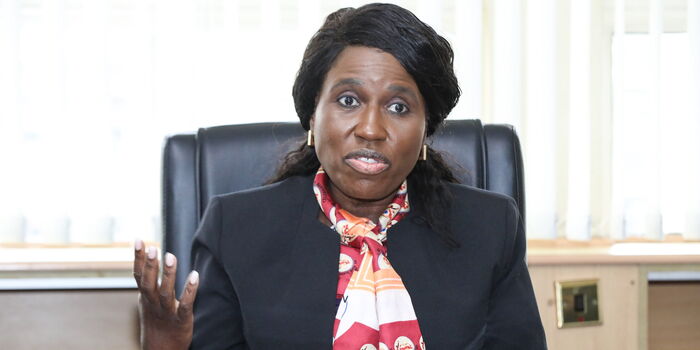The State Department for Higher Education and Research is facing scrutiny over the unexplained expenditure of Sh12.5 million on fuel, raising concerns over possible fraud.
Records fail to specify which vehicles consumed the fuel or which drivers were responsible, leading to questions about financial accountability.
The Auditor-General, Nancy Gathungu, flagged the matter in her report on the department’s financial statements for the 2022-23 fiscal year.
The report, currently being reviewed by the Public Accounts Committee (PAC) of the National Assembly, highlights the lack of documentation to track the fuel usage.
"It was, therefore, difficult to track the fuel drawdowns to the individual copies of motor vehicle work tickets. In the circumstances, the regularity of the expenditure could not be confirmed," the audit report states.
The issue arises as the department struggles with financial difficulties in the higher education sector.
PAC has now summoned top officials to explain why proper documentation was not provided to justify the Sh12.5 million spent on fuel, oil, and lubricants.
Principal Secretary Beatrice Inyangala acknowledged that public funds may have been lost in the process.
The audit found that drivers attached to the department had unrestricted access to fuel.
Documents presented to auditors did not include vehicle registration numbers, making it impossible to determine which cars received the fuel.
MPs on the committee questioned why the department allowed such irregularities, emphasizing the importance of accountability in public resource management.
Aldai MP Maryanne Kitany demanded explanations for the lack of a fuel register to facilitate reconciliation with supplier statements before payments were made.
"Why was this allowed to happen? We have had issues with other government agencies, but not to this extent," Kitany said.
Dr. Inyangala informed the committee that the fuel supplier’s statement did not capture vehicle registration numbers because the department used general fuel cards, making it difficult to track individual vehicle consumption.
This raised concerns that private cars may have benefited from government-funded fuel at taxpayers’ expense.
Misuse of fuel in government departments often results in fraud, theft, or improper utilization, leading to financial losses and eroding public trust.
Some government agencies allocate funds for official vehicle operations, but cases of fuel diversion for personal use, unauthorized trips, or fraudulent claims have been reported, leading to unnecessary financial strain on taxpayers.
PAC Chairperson Tindi Mwale (Butere) pressed for answers on how the department planned to prevent future misuse of public funds.
"So, what measures has your department taken to ensure this does not recur?" Mwale asked.
In response, Dr. Inyangala stated that the department had introduced specific fuel cards assigned to individual vehicles as a corrective measure.
"This has since facilitated the fuel drawdowns to individual copies of vehicles’ work tickets. The management has put in place a fuel register to assist in reconciliation with supplier statements before any subsequent payment is made," she assured the committee.
However, some committee members remained unconvinced by her response and demanded a more detailed explanation.
Kitany proposed that the government adopt technological solutions to track fuel consumption more efficiently, ensuring accountability and minimizing opportunities for fraud.

